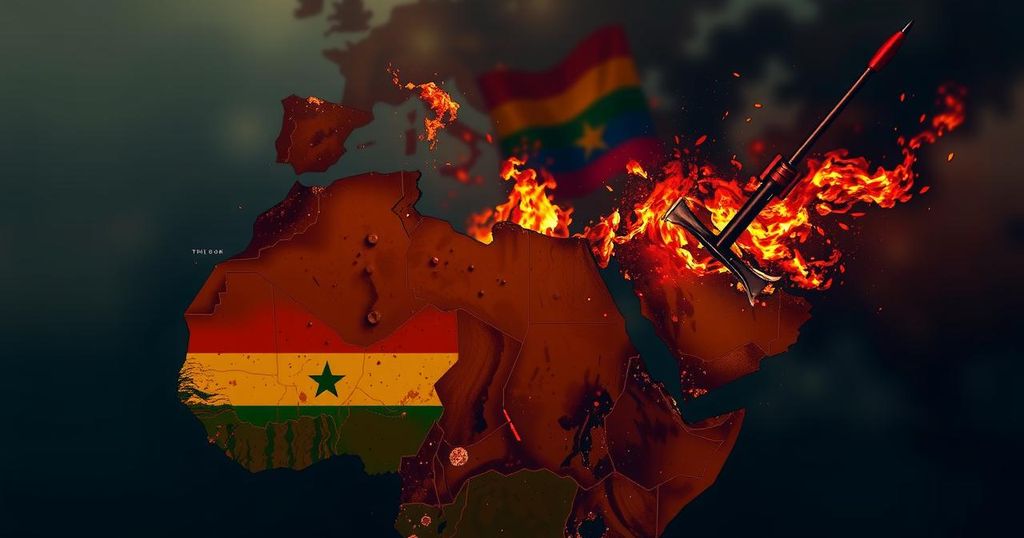The conflict in Sudan has escalated significantly over the past 18 months, fueled by foreign powers and marked by severe humanitarian crises, including mass violence, food insecurity, and widespread displacement. UN Secretary-General Antonio Guterres has called for an immediate ceasefire and accountability for human rights violations. With over 24,000 casualties reported, the ongoing war risks regional instability, especially in historically conflict-prone areas such as Darfur.
The ongoing conflict in Sudan between military and paramilitary factions has escalated significantly, exacerbated by external influences that Secretary-General Antonio Guterres of the United Nations described as “fueling the fire.” This situation, which has intensified over the past 18 months, has led to a humanitarian crisis marked by widespread hunger, disease, and violence affecting millions. Guterres expressed concern that the conflict could potentially ignite regional instability across areas from the Sahel to the Horn of Africa and the Red Sea. Recent reports detail the horrors faced by the Sudanese people, including mass killings, severe ethnic violence, and rampant sexual assaults, particularly in regions such as Gezira province. The secretary-general highlighted that over 750,000 individuals are experiencing catastrophic food insecurity, with many displacement sites in North Darfur confirmatory of famine conditions. The war, which erupted in mid-April 2023 due to escalating tensions between Sudan’s military and paramilitary leaders, has claimed the lives of more than 24,000 people, creating the worst displacement crisis globally, with over 11 million people dislocated from their homes. Guterres urged an immediate cessation of hostilities from both sides to prioritize civilian protection and facilitate humanitarian assistance. He condemned ongoing attacks on civilians, specifically stating, “I am horrified by reports that the paramilitary Rapid Support Forces… continue to attack civilians in North Darfur’s capital El Fasher.” Furthermore, the secretary-general emphasized the necessity for accountability for those violating international humanitarian laws, asserting that both sides might be guilty of war crimes and crimes against humanity, particularly as observed in the historically tumultuous region of Darfur. The current conflict versus Sudan’s past lends a disturbing perspective; the region of Darfur, which had previously been the epicenter of genocide and war crimes, appears to relive its ominous history. With the International Criminal Court indicating potential war crimes committed by both factions involved, the situation demands urgent global attention and action to prevent further tragedy in Sudan.
The article addresses the ongoing conflict in Sudan, which reignited in April 2023 due to deep-rooted tensions between military forces and paramilitary groups. This conflict has severe humanitarian repercussions, leading to a dire situation typified by violence, hunger, and displacement. The United Nations has emphasized the gravity of the situation, calling for a ceasefire and accountability for atrocities. The historical context of the Darfur region, notorious for past genocidal acts, underlines the critical nature of the current crisis and the risk of repeating history if prompt action is not taken.
The unfolding crisis in Sudan, exacerbated by foreign involvement, represents one of the gravest humanitarian situations in recent history. The extensive loss of life, mass displacements, and reports of significant human rights abuses underscore a need for immediate international intervention. The call for both military factions to halt hostilities and for accountability mechanisms to be established is crucial in preventing further atrocities in Sudan.
Original Source: www.africanews.com






